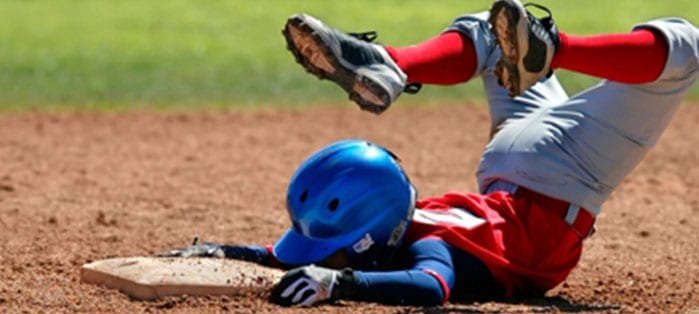

A child or teen with a concussion needs to be seen by a medical provider. If you think your child or teen has a concussion, contact his or her health care professional.
Remove From Play
If the concussion happens while playing sports, you should also:
- Remove the child from play.
- Keep the child out of play the day of the injury and until a medical provider – a certified athletic trainer or physician who is experienced in evaluating for concussion – says he or she is symptom-free and it’s OK to return to play.
Children or teens who return to play too soon—while the brain is still healing—risk a greater chance of having a repeat concussion. Repeat or later concussions can be very serious. They can cause permanent brain damage, affecting your child for a lifetime.
Seek Medical Care
If there is an athletic trainer available at the school or sporting event, he or she would be the best place to start for an evaluation. Concussions can also be treated in the emergency department or in a medical office, and most of the time athletes get to go home after an evaluation. However, when the injury is more serious, your child or teen may need to stay in the hospital overnight.
What to Tell The Medical Provider
Be sure to tell the medical provider if your child or teen is taking medications—prescription, over-the-counter medicines, or “natural remedies.” When possible, also write down and share the following information:
- Cause of the injury and force of the hit or blow to the head or body
- Any loss of consciousness (passed out/knocked out) and if so, for how long
- Any memory loss right after the injury
- Any seizures right after the injury
- Number of previous concussions (if any)
Tests For Concussion & Brain Injury
A certified athletic trainer will perform a concussion assessment to determine the number and severity of any symptoms. A physician or emergency department may do a scan of his or her brain (such as a CT scan) to look for signs of a more serious brain injury. Other tests such as “neuropsychological” or “neurocognitive” tests may also be performed. These tests help assess your child or teen’s learning and memory skills, the ability to pay attention or concentrate, and how quickly he or she can think and solve problems. Some tests may also test for your child’s ability to balance. These tests can help the child’s medical provider identify the effects of the concussion.
Get Written Concussion Care Instructions
Ask for written instructions from the young athlete’s health care provider on return to play. These instructions should include information about when they can return to play and what steps you should take to help them safely return to play. Before returning to play an athlete should:
- Be back to doing their regular school activities.
- Not have any symptoms from the injury when doing normal activities.
- Have the green-light from their health care provider to begin the return to play process.
You can also utilize the following fact sheets for home care and return-to-school advice:


